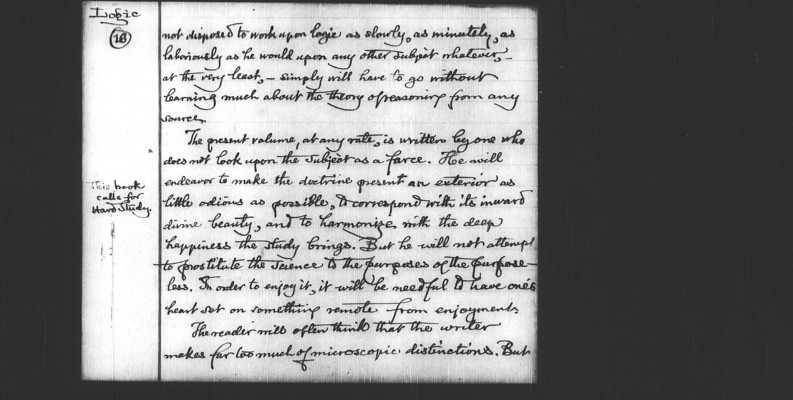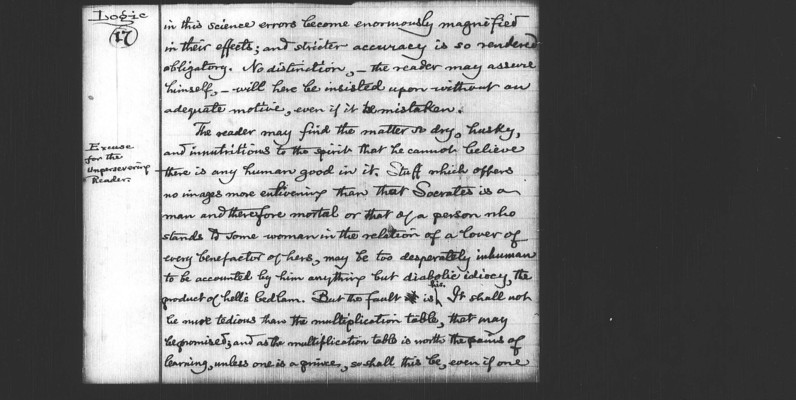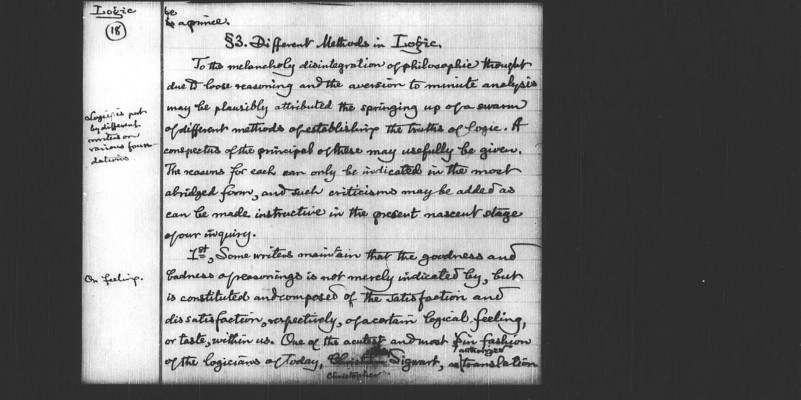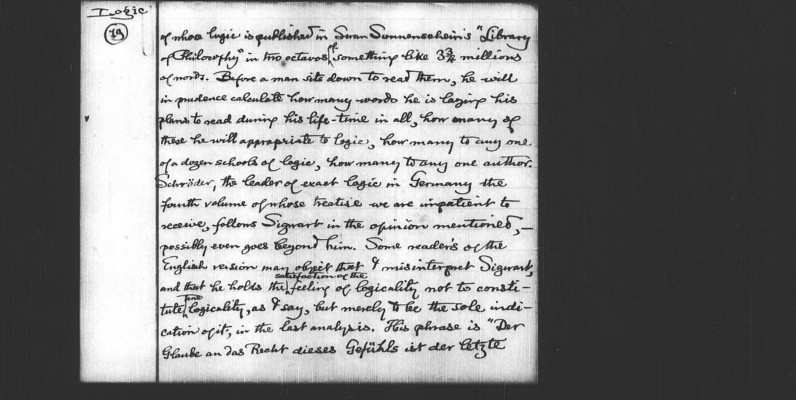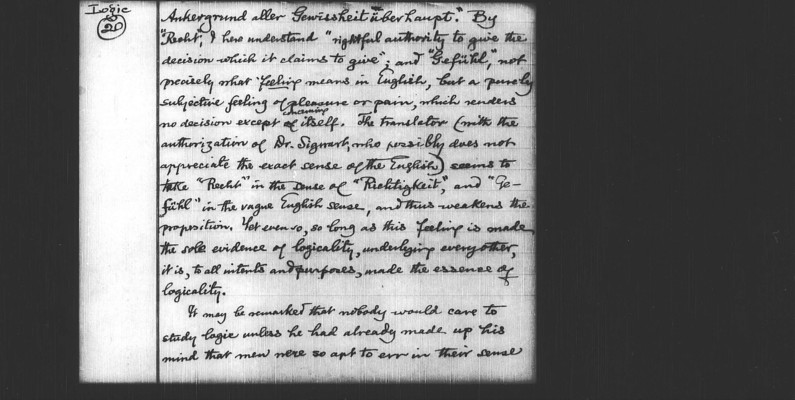Pages
16
{Left margin, top of page: "Logic 16"}
not disposed to work upon logic as slowly, as minutely, as laboriously as he would upon any other subject whatever,-- at the very least,-- simply will have to go without learning much about the theory of reasoning from any source.
{Left margin, middle of the paragraph below: "This book calls for hard study."}
The present volume, at any rate, is written by one who does not look upon the subject as a farce. He will endeavor to make the doctrine present an exterior as little odious as possible, to correspond with its inward divine beauty, and to harmonize with the deep happiness the study brings. But he will not attempt to prostitute the science to the purposes of the purposeless. In order to enjoy it, it will be needful to have one's heart set on something remote from enjoyment.
The reader will often think that the writer makes far too much of microscopic distinctions. But
17
{Left margin, top of page: "Logic 17"}
in this science errors become enormously magnified in their effects; and stricter accuracy is so rendered obligatory. No distinction,--the reader may assure himself,--will have to be insisted upon without an adequate motive, even if it be mistaken.
{Left margin, next to first sentence of paragraph below: "Excuse for the Unpersevering Reader."}
The reader may find the matter so dry, husky, and innutritious to the spirit that he cannot believe there is any human good in it. Stuff which offers no images more enlivening that that Socrates is a man and therefore mortal or that of a person who stands to some woman in the relation of a lover of every benefactor of hers, may be too desperately inhuman to be accounted by him anything but diabolical idiocy, the product of hell's bedlam. But the fault is his. It shall not be more tedious than the multiplication table, that may be promised; and as the multiplication table is worth the pains of learning, unless one is a prince, so shall this be, even if one
18
{Left margin, top of page: "Logic 18"}
be a prince.
§3. Different Methods in Logic
{Left margin, middle of the paragraph below: "Logic is put by different writers on various foundations."}
To the melancholy disintegration of philosophic thought due to loose reasoning and the aversion to minute analysis may be plausibly attributed the springing up of a swarm of different methods of establishing the truth of logic. A conspectus of the principal of these may usefully be given. The means for each can only be indicated in the most abridged form, and such criticisms may be added as can be made instructive in the present nascent stage of our inquiry.
{Left margin, next to first sentence of the paragraph below: "On Feelings."}
1st, Some writers maintain that the goodness and badness of reasonings is not merely indicated by, but is constituted and composed of the satisfaction and dissatisfaction, respectively, of a certain logical feeling, or taste, within us. One of the acutest and most in fashion of the logicians of today Christian Christopher Sigwart, {Christoph von Sigwart (1830-1904)} an authorized translation
20
{Upper left margin: "Logic 20"}
Ankergrund aller Gewissheit überhaupt." By "Resht", I here understand "rightful authority to give the decision which it claims to give"; and "Gefühl," not precisely what feeling means in English, but a purely subjective feeling of pleasure or pain, which renders no decision except concerning itself. The translator (with the authorization of Dr. Signash, who possibly does not appreciate the exact sense of the English) seems to take "Recht" in the sense of "Richtigheit," and "Gefühl" in the vague English sense, and thus weakens the proposition. Yet even so, so long as this feeling is made the sole evidence of logicality, underlying everyother, it is, to all intents and purposes, made the essence of logicality.
It may be remarked that nobody would care to study logic unless he had already made up his mind that men were so apt to err in their sense
